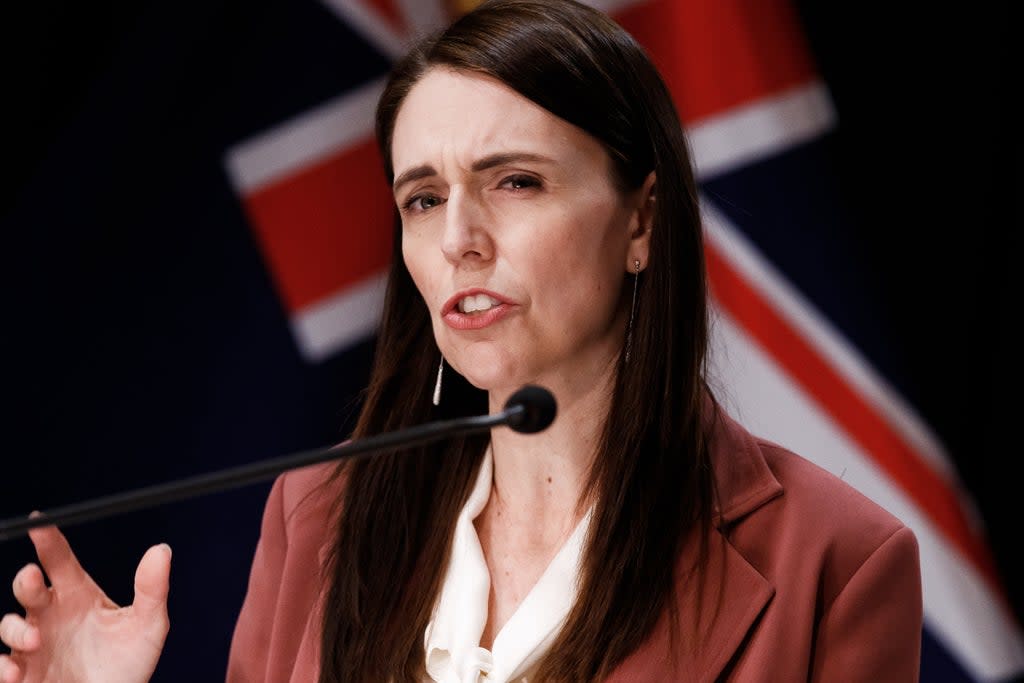Jacinda Ardern under fire over Omicron threat to NZ border reopening

New Zealand Prime Minister Jacinda Ardern is under fire after suggesting the emergence of the Omicron Covid variant could push back the country’s border reopening date.
Ms Ardern initially stated that the international borders would reopen for New Zealanders on January 1 after abandoning the country’s ‘zero covid’ policy.
She has now has confirmed the re-opening date will be subject to a review on either Jan 7 or 8 due to the emergence of the new strain.
Her comments came despite the World Health Organisation concluding that blanket travel bans are not effective in the fight against covid.
The Prime Minister said: “We haven’t changed any decisions at this stage around reconnection... but I think people understand we need to review the latest details and evidence around omicron.”
On Thursday afternoon the first known case of Omicron in New Zealand was confirmed.
In a statement from late November, the WHO warned: “Blanket travel bans will not prevent the international spread [of Omicron], and they place a heavy burden on lives and livelihoods.”
Business NZ chief executive Kirk Hope said the government was being “overly cautious”.
He added: “They’re using an approach that has suited them well. But it’s increasingly frustrating for businesses, who are going to be at a competitive disadvantage to Australia,” he told AAP. “The (border rethink) signal has created quite a lot of uncertainty for business, which had been looking forward to the door opening on the border even just a bit.”
Currently, anyone wishing to enter New Zealand must be fully vaccinated and spend seven days in a managed isolation facility at their own expense of £825. They must then quarantine for a further two days at home, released when they can produce a negative test on day nine or later.
New Zealand completely closed its border on 19 March, 2020. It has since intermittently operated a “trans-Tasman travel bubble” with Australia.
Ninety per cent of eligible New Zealanders have received two doses of Covid vaccine.
Marion Rae, a New Zealander who lives and works in Canberra, Australia’s national capital, told The Telegraph that the ongoing closed border had been difficult.
“So far my stepmother has died and my dad is getting frail. I’d rather not miss another funeral. I’d just like to hug him,” she said.
“And I last saw my son at my mum’s funeral two years ago.”
Ms Rae added that she understood the need to ensure all New Zealanders had the opportunity to be fully vaccinated, particularly in light of the omicron variant’s rapid transmissibility.
“I’d rather see people protected than not. It’s not a time to be selfish,” she said.
Canterbury University modeller Michael Plank told Radio New Zealand (RNZ) that omicron’s severity compared to the delta variant was still unclear, and it would take scientists a little longer to work out.
“The fact that it can spread more quickly and infect people who’ve been vaccinated more easily means it certainly is likely to cause problems,” he said.
Earlier this week, Epidemiologist Michael Baker told RNZ the country’s current border controls are a good line of defence.
“I think we need to learn from experience overseas and this has been one of the great advantages New Zealand’s had, we’ve usually got a little more warning time about how the virus is behaving overseas so we can use that strategically.”

 Yahoo News
Yahoo News 
